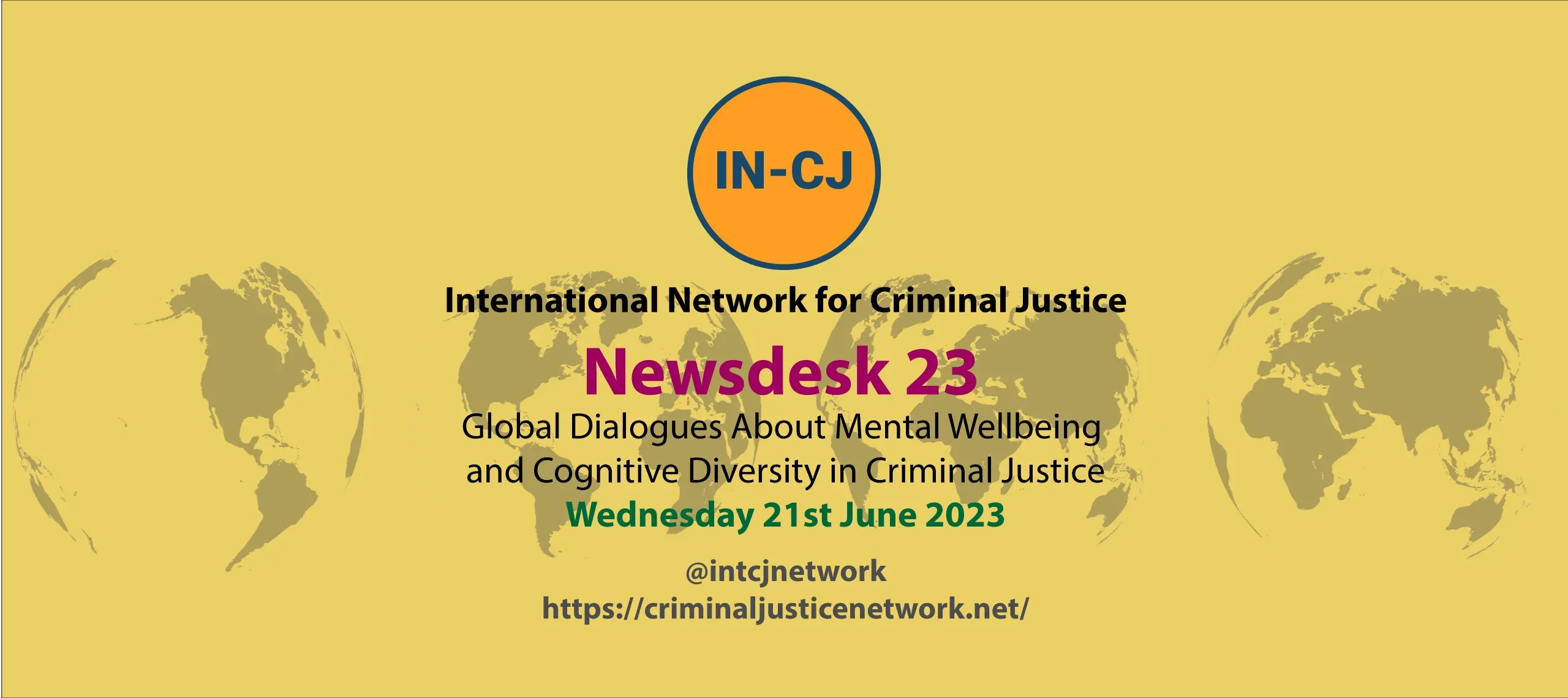Understanding the IN-CJ Development Model – Its Role and Impact in Criminal Justice

The IN-CJ Development Model serves as a foundational framework for the International Network for Criminal Justice (IN-CJ), aimed at enhancing collaboration and knowledge sharing within the criminal justice field. This model, guided by values such as equality, peace, and respect, focuses on bridging the gaps between different criminal justice practices and perspectives across various countries.
Download the DRAFT IN-CJ-Development Model Here
The development of a model that emphasises the significance of criminal justice as an international professional activity is of paramount importance in today’s interconnected world. The model acknowledges that criminal justice issues are not confined within national borders but are complex, transnational challenges that require a broad, global perspective. By fostering international collaboration and knowledge exchange, this development model helps criminal justice professionals from diverse jurisdictions to share best practices, innovative solutions, and varied experiences.
 This international approach also enriches the professional practice of criminal justice by exposing practitioners to a wide array of legal, social, and cultural contexts. It encourages them to think beyond their local environments and consider a wider range of strategies and methodologies, potentially leading to more effective and culturally sensitive justice solutions. Additionally, an international focus promotes the understanding of global crime trends, cross-border issues, and the impact of international policies, enabling practitioners to develop more comprehensive strategies to address crime and justice issues.
This international approach also enriches the professional practice of criminal justice by exposing practitioners to a wide array of legal, social, and cultural contexts. It encourages them to think beyond their local environments and consider a wider range of strategies and methodologies, potentially leading to more effective and culturally sensitive justice solutions. Additionally, an international focus promotes the understanding of global crime trends, cross-border issues, and the impact of international policies, enabling practitioners to develop more comprehensive strategies to address crime and justice issues.
Moreover, by valuing criminal justice as an international professional activity, this development model cultivates a diverse professional community. It bridges gaps between countries and disciplines, creating a network of professionals who are better equipped to tackle complex, global challenges collaboratively. This network not only enhances individual professional development but also contributes to the evolution of criminal justice as a field, making it more adaptable, inclusive, and effective in responding to the ever-changing landscape of international crime and justice.
From fostering international partnerships to encouraging innovative approaches in policy development, the model provides a structured yet flexible approach to understanding and improving criminal justice systems globally. The model emphasises how community of practice principles and networks of practice approaches contribute to more effective and inclusive criminal justice practices. We hope that the IN-CJ Development Model will have significance in shaping a collaborative and informed approach to criminal justice worldwide.
Key themes and issues include:
Core Values: The model is centred around values of equality, peace, sustainability, respect, accountability, inclusivity, curiosity, and recognition. These values are integrated with various activities like knowledge exchange, experience exchange, ideas exchange, partnerships, collaboration, crowdsourcing, social value creation, individual and group agency, social capital, policy development, publishing, and learning and research.
Aims and Purposes: The IN-CJ model aims to facilitate knowledge exchange, indirectly influence policy development, foster an inclusive and non-hierarchical environment, and provide an international perspective on criminal justice issues. It encourages exchanging knowledge and ideas between professions and countries, facilitates partnerships and collaborations, and explores crowdsourcing as a funding source. The model also focuses on publishing and learning to contribute to policy development and broaden criminal justice perspectives internationally.
Network Development and Community of Practice: The model emphasises self-organizing networks and communities of practice (CoPs) to encourage collaboration, knowledge exchange, and innovation. It focuses on developing relationships within the network and leveraging them for collective learning and improvement.
Networking Principles: The model incorporates principles like homophily, mutuality, transitivity, and decentralization. These principles shape the network’s configuration and enhance its effectiveness in knowledge exchange and concept development.
Network Dynamics: The development of the network is influenced by collaborative choices, existing relationships, and a dynamic process that evolves, affecting the network’s structure and effectiveness.
Network of Practice and CoPs: The model incorporates a network of practice for information exchange and perspectival empathy, enhancing learning, innovation, and collaboration. CoPs are used to promote cross-disciplinary dialogue, innovation, and knowledge sharing.
Reflexive and Self-Evaluative Approach: The model adopts a reflexive and self-evaluative approach in developing the CoP, focusing on regular activities, conflict management, and continuous improvement.
Broadening Perspectives and Policy Development: IN-CJ encourages broadening criminal justice perspectives and fostering better understanding among practitioners, policymakers, and researchers. It emphasises the importance of international perspectives, partnerships, collaboration, and policy development.
Value Themes Matrix: The model uses a matrix to associate specific activities with the core values, providing clarity, guiding decision-making, and serving as a communication and evaluation tool.
Specific Activities and Their Significance: Activities like knowledge exchange, experience exchange, ideas exchange, collaborative partnerships, crowdsourcing, social value creation, agency, and social capital are highlighted for their significance in enhancing the criminal justice system, fostering inclusivity, and influencing policy development.
Overall, the IN-CJ Development Model is a start in the development of a comprehensive framework focusing on value-driven activities, international collaboration, and innovative practices to enhance the effectiveness and efficiency of criminal justice systems.
As the authors of the IN-CJ Development Model, we recognise the dynamic and evolving nature of criminal justice practices on a global scale. We deeply value the insights, feedback, and constructive engagement from professionals, academics, and practitioners within the criminal justice field and beyond. Our commitment to continuous improvement and adaptability is fundamental to the model’s success and relevance.
We warmly invite feedback and constructive engagement from all stakeholders to enhance and refine the IN-CJ Development Model. We aim to ensure that the model remains responsive to the real-world challenges and opportunities encountered in criminal justice systems worldwide. Not only that, but we are particularly interested in testing the model against various examples and practical situations. By doing so, we can gauge its effectiveness, identify areas for refinement, and ensure it accurately reflects the complexities and nuances of international criminal justice practice.
This process of ongoing evaluation and adaptation is not only crucial for the model’s development but also fosters a collaborative and inclusive environment within the criminal justice community. We encourage the sharing of experiences, insights, and perspectives that can enrich the model. Through this collaborative effort, we strive to create a robust, comprehensive framework that effectively addresses the needs of criminal justice practitioners and contributes positively to the field. Your input is invaluable in this journey, and we look forward to engaging with you to advance the practice of criminal justice globally.
Professor David Ward, John Scott, Dr Rob Watson, Sara Ciucci.
Ward, David (et al.) (2023). IN-CJ Development Model. figshare. Online resource. https://doi.org/10.6084/m9.figshare.24666153.v1



